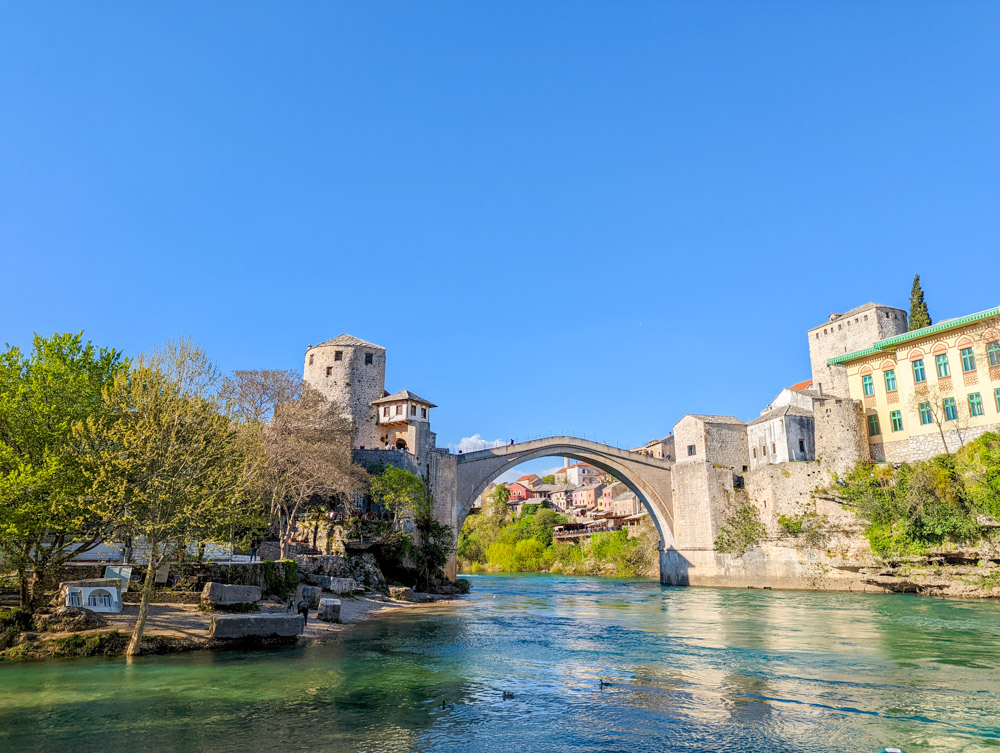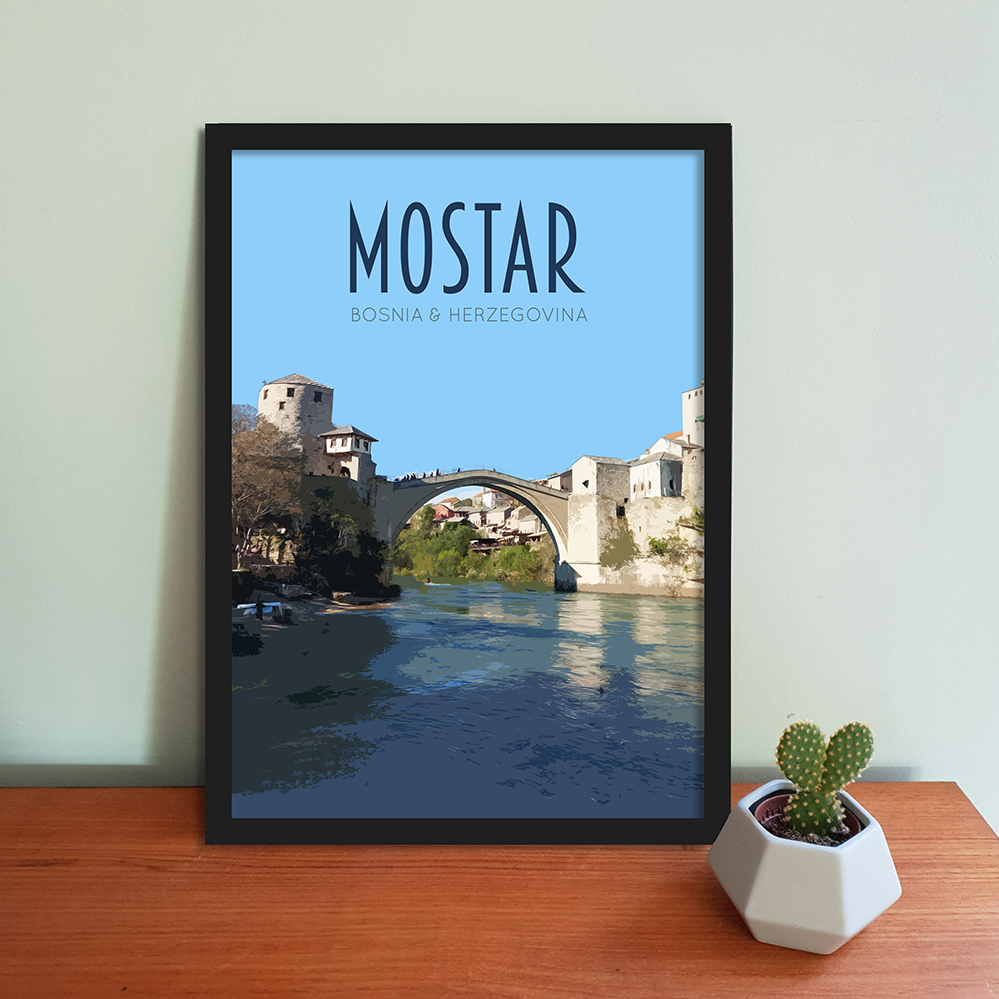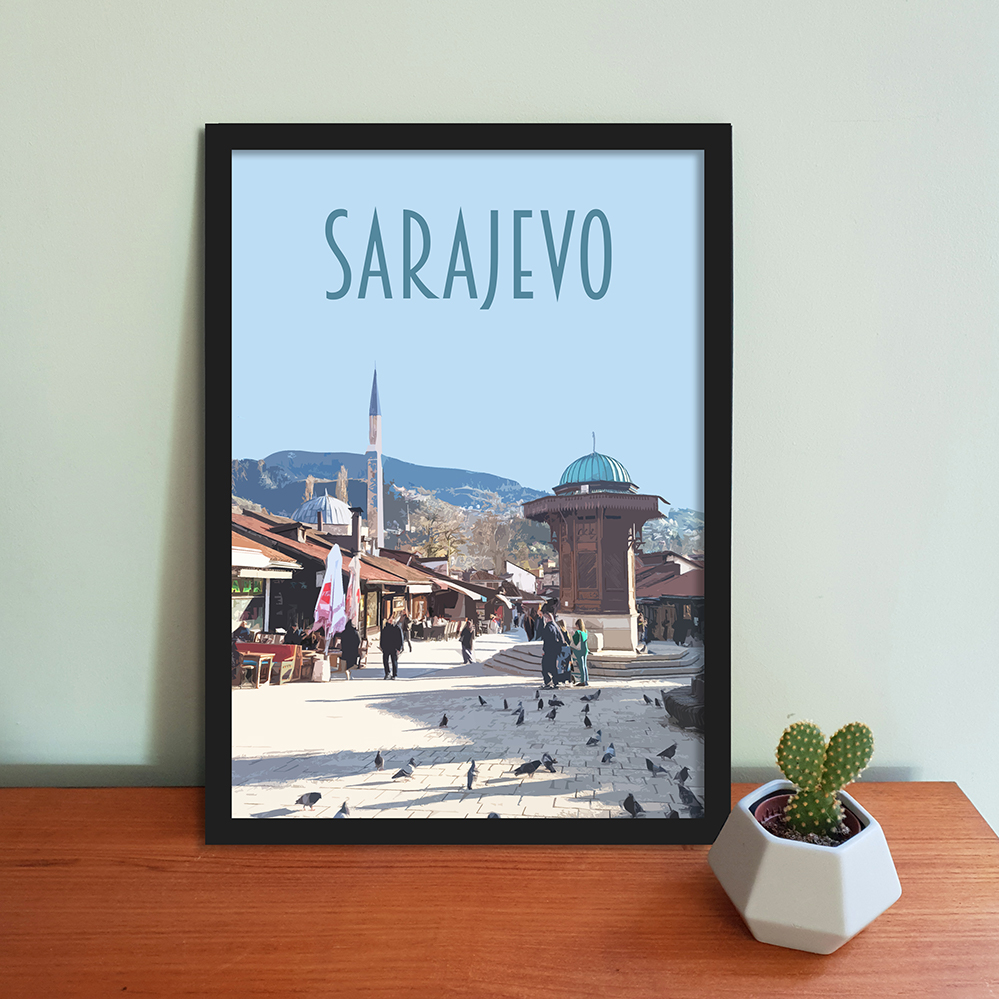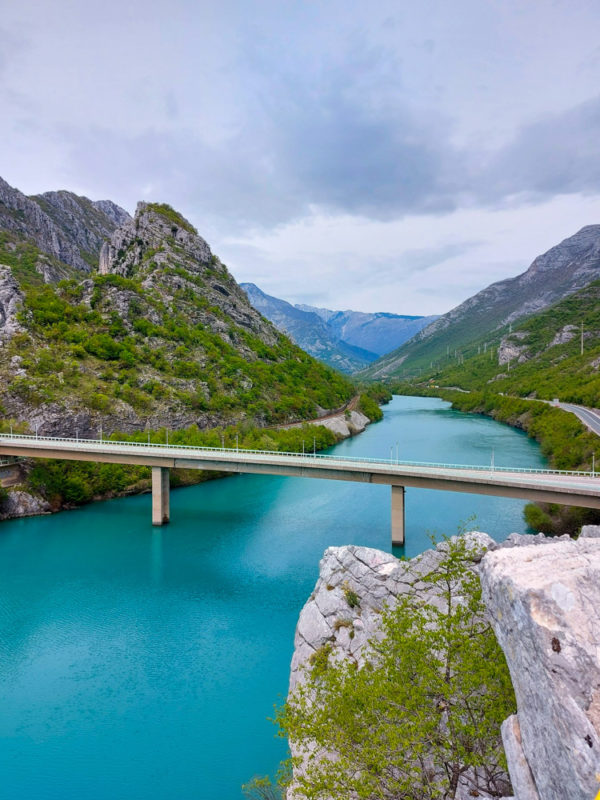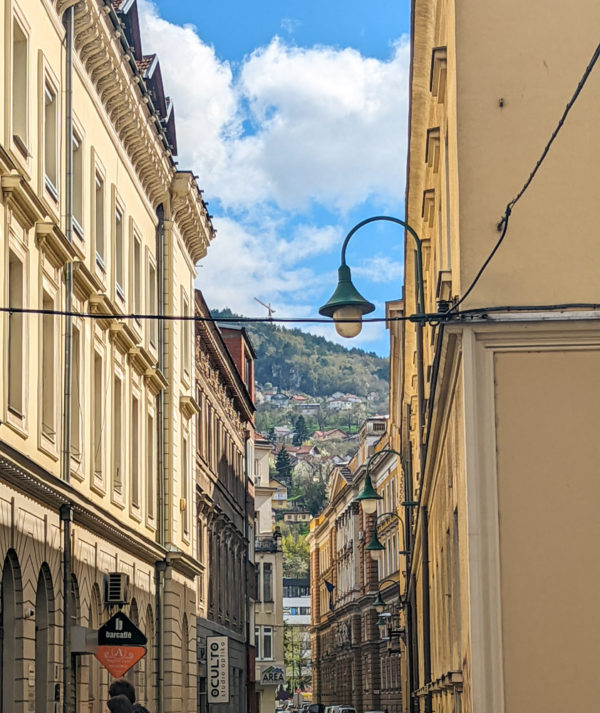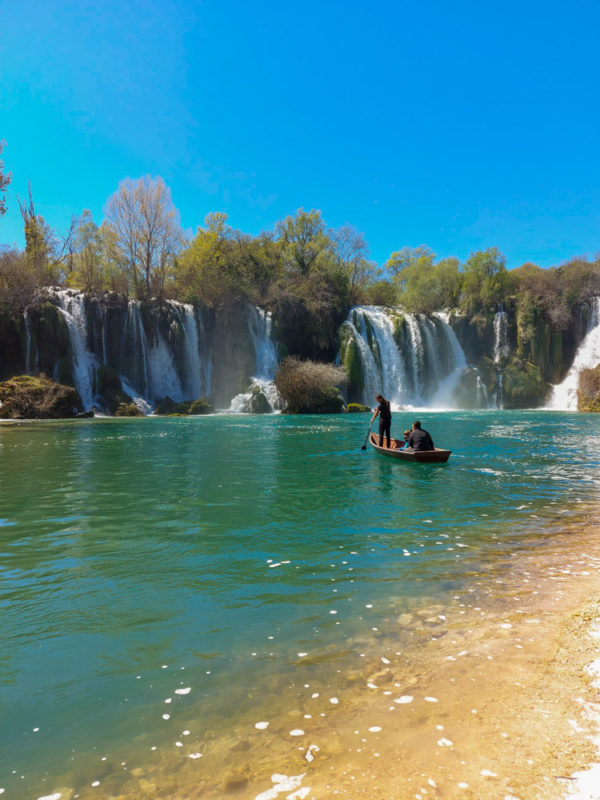Bosnia and Herzegovina is a beautiful country filled with stunning scenery and hidden gems. The old town of Mostar and the capital, Sarajevo, are perhaps the most visited places by tourists but they’re still not as popular as many other destinations in Europe. We were lucky enough to spend 5 days in the country in April 2022. Here are some tips we picked up along the way and things we wish we had known before visiting!
Currency in Bosnia and Herzegovina
The currency in Bosnia and Herzegovina is the convertible mark which you’ll often see written as KM or BAM. The exchange rate is approximately 10KM = approximately £4 or €5
We found that most restaurants do not accept card payments so make sure you have some cash with you. ATMs tend to charge a transaction fee, so try to work out how much you would need and get a sensible amount. You don’t want to be stuck with lots of currency leftover that you can’t use elsewhere.
Language of Bosnia and Herzegovina
Bosnian and Herzegovina has three official languages which reflects the various cultures that make up the country. The languages are Bosnian, Serbian and Croatian. A tour guide in Dubrovnik told us that along with Montenegrin, all of the south west slavic languages are pretty much the same so someone speaking Bosnian could easily have a conversation with someone speaking Croatian. So don’t worry about learning phrases in three different languages! Also if you’re trying to translate text and your app doesn’t have one of the languages, we found it will translate from the others.
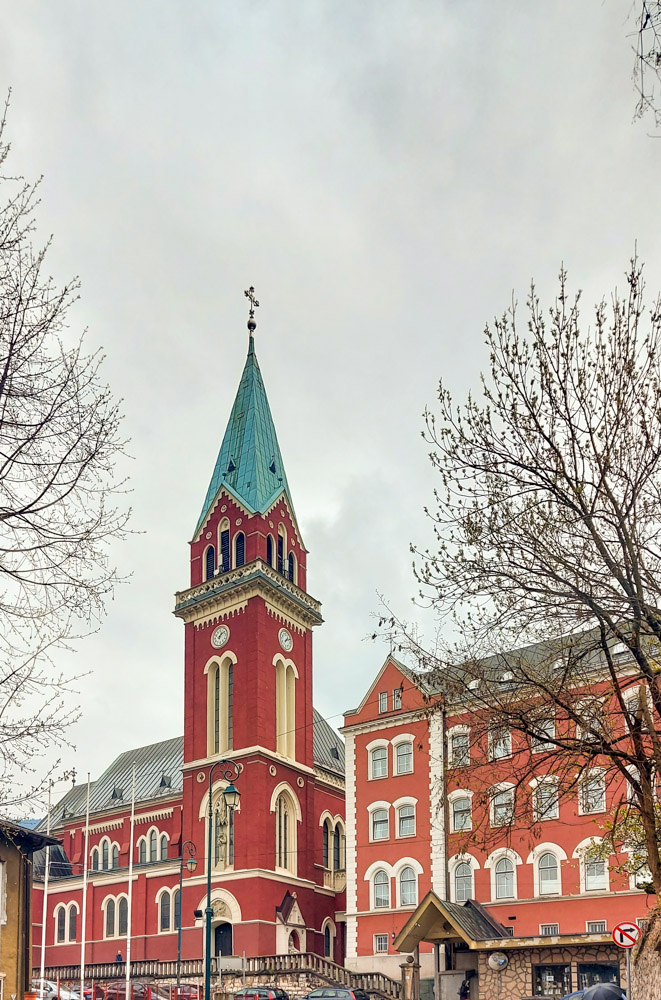
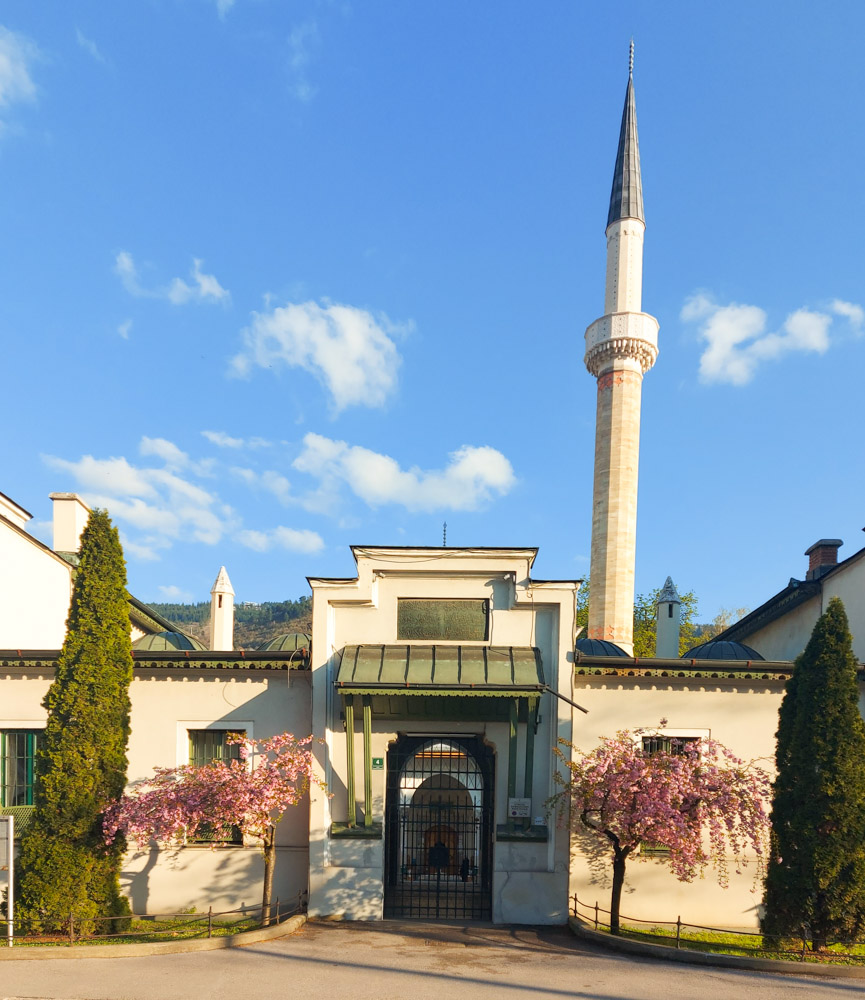
Smoking Indoors in Sarajevo
I was very surprised to discover that it is still legal to smoke indoors in public spaces in Bosnia and Herzegovina! This wasn’t so prevalent in Mostar, in fact I didn’t notice it at all until we reached Sarajevo.
For some this may be a good thing but my asthmatic lungs didn’t enjoy it all! If you visit in the summer it could be less of an issue because it will be warm enough to sit outside. We managed to find one restaurant that was smoke free – Klopa – which also had delicious food!
Our accommodation also stank of stale smoke. We kept the windows open as much as possible but the odour didn’t shift. If this would likely bother you, I’d recommend looking at larger hotels and see if they offer non-smoking rooms. We didn’t know about this beforehand so just booked a little studio apartment on booking.com.
Driving in Bosnia and Herzegovina
Driving was fairly easy in Bosnia and Herzegovina. The only minor issue we had was getting stuck in a loop in Sarajevo’s one way system while trying to find our accommodation. Parking is very limited in the city so make sure it’s included in your hotel if you’re hiring a car.
To be able to drive in Bosnia and Herzegovina, technically you need an international driving permit. We didn’t realise this until a few days before we flew out. Luckily, you can pick one up on the spot in many Post Office branches in the UK. You just need your licence and a passport style photo. They literally glue your photo onto a bit of card and that’s it. It all looks a bit dodgy and very 1970s. We collected our hire car from Dubrovnik Airport and drove across borders to Bosnia and Herzegovina, Montenegro and Albania and not once did anyone ask for our international driving permit. But they only cost £5.50 and last 3 years so better to be safe and get one just in case.
Also, just like most of the world, you drive on the right hand side in Bosnia and Herzegovina.
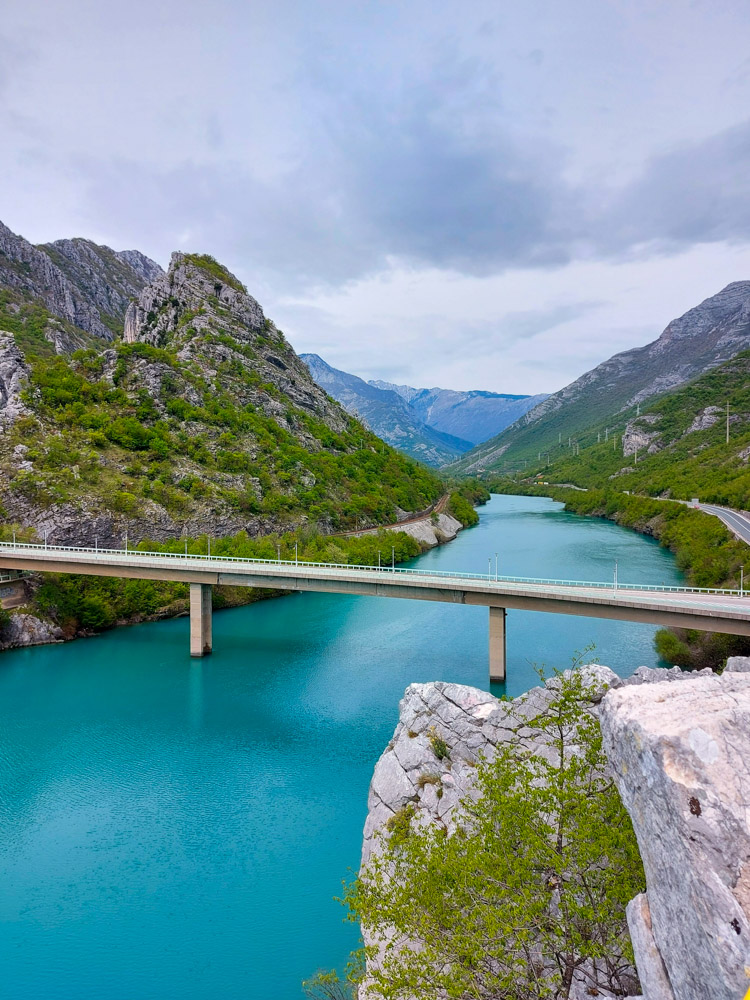
Prayer times
Bosnia and Herzegovina is a very diverse country with lots of ethnicities and religions. Around 50% of the population is Muslim. This is something I didn’t realise before we visited so I was surprised to hear prayer calls echoing from the towers of the mosques around Mostar and Sarajevo.
The call to prayer is broadcast five times a day, at varying times depending on the position of the sun. When we visited in April, one of the times fell in the middle of the night. The call initially woke us around 4 in the morning. We got used to eventually and it didn’t bother us at all, it was just unexpected the first night!
How to drink Bosnian Coffee
Coffee is a huge part of Bosnian culture. They actually rank 9th in the world for coffee consumption per capita! Bosnia Coffee is very similar to Turkish coffee. It is served in small traditional copper pots along with a sugar cube and a rahat lokum which is similar to Turkish delight. To drink the coffee you are supposed to nibble the sugar cube between sips to sweeten the taste, rather than dissolving the sugar in the cup.
Earthquakes in the Balkans
Earthquakes are probably not something you would associate with this part of the world but they can be fairly common in the Balkans.
The day after we left Bosnia and Herzegovina there was an earthquake near Mostar. We were in Kotor, Montenegro at this point but still felt a slight shake.
Hopefully this won’t be something you need to worry about. But if you do feel a rumble in the night, it probably is an earthquake!

